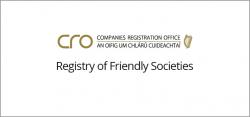Archive before April 2022
87 Posts , Viewing posts 31 to 40
Company Law No Deal Brexit

COMPANY LAW - NO DEAL BREXIT
It is hard to know how many people actively care or even believe anything one hears about Brexit at this stage. However, as the prospect of a No Deal Brexit edges ever closer to reality companies are left with no choice but to care.
Two things to consider in the event of a No Deal are outlined below.
Directors Residency
Companies incorporated in Ireland must have a minimum of one Director resident in the European Economic Area (EEA). The EEA is an International Agreement that extends the EU single market to
non-EU member parties including Liechtenstein, Iceland and Norway.
Currently, a number of companies rely on having a Director resident in the UK to fulfil the above requirement. Clearly, if or when a No Deal occurs than those companies will no longer have an EEA Director and must have an alternative plan in place. Companies are left with pretty much two choices as they can either:
(a) appoint a new Director who is resident within the EEA; or
(b) take out a Bond with appropriate Insurers.
External Companies
Companies incorporated in the UK and registered in Ireland as an “External Company” will also face changes in the event of a No Deal. Such companies would have registered as an External Company on the basis that they either trade or have a place of business in the State.
In the event of a No Deal then companies incorporated in the UK and registered in this State as an External Company will have to start filing Annual Returns in Ireland under non-EEA country legislation, refer to Sections 1304 to 1306 Companies Act 2014. Given the paucity of filing requirements on External Companies anyway one must assume that this will be a change easily overlooked.
Enjoy your summer holidays Brexit awaits!
Central Register of Beneficial Ownership of Companies and Provident Societies – Opening Postponed
Central Register of Beneficial Ownership of Companies and Provident Societies – Opening Postponed
The common understanding of Beneficial Ownership is that companies must provide details of any individual with an ultimate shareholding of 25%+1 share in any company registered in Ireland.
Providing a detailed understanding of the intricacies involved or, obtaining the pertinent information required is not easy.
The history in implementing EU Anti-Money Laundering Directives in Ireland is almost as long as the name of the Irish Central Register. Some of the key points relating to Anti-Money Laundering and Beneficial Ownership are noted below.
November 2016 Statutory Instrument No. 560 requiring companies to create and maintain a Register of Beneficial Ownership
July 2018 5th Anti-Money Laundering Directive entered into force in EU
November 2018 Criminal Justice (Money Laundering and Terrorist Financing) (Amending) Act 2018
March 2019 Statutory Instrument No. 110 requiring companies to file their Beneficial Ownership details with the Central Register
June 2019 Central Register to be open for electronic filings by companies
November 2019 Deadline for all companies to complete their filings on the Central Register
January 2020 Transposition of 5th Anti-Money Laundering Directive by all Member States
It should have been possible from 22.06.2019 for companies to start electronically filing in the Central Register. Unfortunately, the Central Register have advised that the opening of the Register has been postponed temporarily.
Regardless of whether or not one can file on the Central Register companies must still maintain and update their own internal Register of Beneficial Owners.
New Beneficial Ownership Rules

New Beneficial Ownership Rules
The long-awaited legislation to set up the Beneficial Ownership Register in the Companies Registration Office has finally arrived. The relevant statutory instrument (The European Union (Anti-Money Laundering: Beneficial Ownership of Corporate Entities) Regulations 2019) was enacted on the 22nd of March 2019.
What does this mean for my company?
- The majority of Irish companies must have an internal Beneficial Ownership Register in place. If this is not already actioned it must be done now. It can no longer be put on the long finger!
- Beneficial Ownership information must be filed in the newly established Central Register of Beneficial Ownership. The Register will be operational and filings can commence from the 22nd of June 2019. There is a five-month grace period which means the latest a filing can be made on is the 22nd of November, 2019 – although it is probably not advisable to wait until then as the penalties for non-compliance have been sizably increased.
Is there anything new I should be aware of (apart from the basic fact that there is a new Central Register)?
- PPS numbers for every Beneficial Owner must now be provided for in the Register
- Some of the information on the Central Register will be accessible to the general public
- Fines for breach have increased from €5,000 to €500,000
More details and advice on this important new legislation is available at any time from KomSec .
BREXIT - options for UK companies with interests in the Republic of Ireland

Since the New Year KomSec Limited has experienced a sustained level of increased queries from UK based organisations with interests in Ireland, looking for advice on the choices available to them post-Brexit - Branch Registration or Company Incorporation.
Branch Registration – of interest to some as once registered a Branch has fairly basic statutory filings. Also, Branches file the same financial statements as those filed in the country of origin (i.e. country where company registering Branch was incorporated).
Downside for some is an unease at having to appoint an Authorised Person (resident in the State) representing the Branch where he/she can have as much control over the Branch as any Company Director.
Company Incorporation – of interest as once incorporated the company only needs to either have one individual Director resident anywhere within the EEA or a Bond (S.137 Companies Act 2014). Companies can apply for exemption from the residency rule/Bond on the grounds that the company has “a real and continuous link with one or more economic activities being carried on in the State”. This statement must be supported by the Irish Revenue Commissioners stating it has reasonable grounds to believe the company has such a link.
Downside for some is that once set up the company has a life of its own requiring it to make regular annual filings throughout its corporate history, including preparing and filing financial statements specific to the Irish company.
Which option is ultimately selected will most likely be driven by tax advice. To date, KomSec Limited has found client interest split fairly evenly between both types of entities. To explore options available for your specific organisation contact KomSec Limited directly.
Brexit - Corporate Preparation

The momentum for Corporate Ireland to prepare for Brexit is finally gaining traction.
Hard or soft exit is not particularly relevant at this point. For now, corporate Ireland should have a schedule of events noting person responsible for reviewing/implementing, and deadline for completion. Some of the areas are outlined below.
- Auditor registration status – in event of a no deal Brexit Auditors based in the UK will no longer meet the eligibility criteria for approval as EU statutory auditors. This means they will no longer be:
(a) entitled to hold audit appointments for Irish companies;
(b) sign audit reports; and
(c) eligible for inclusion on the Irish audit register.
This is something that should be put on your company’s Risk Register. Failure to have an appropriate Auditor in place in time will impact on the signing,
adoption, and filing of Financial Statements.
- Brexit NI – do not forget Northern Ireland will be included in the UK Brexit from the European Union. This seems to be a common problem for a number of companies probably because both jurisdictions are on one island.
- Data Protection – once the UK leaves the EU it will become a “third country” and must be treated as one would any other non-EU state. This will have an immediate impact on the transfer of data between Ireland, and the UK, e.g. companies with inter-company loans, payroll operations, access to group intranets, transfer of public data, etc.
There will be no “transition” period for data protection, it will be effective immediately.
- Director residency – in the event the UK leaves EU without a deal in place companies which have only UK resident director(s) will be required to comply with S.137 Companies Act 2014, i.e. they must have either:
(a) director resident within the EEA; or
(b) bond with appropriate insurers for minimum of two years; or
(c) exemption on the grounds the company has a “real and continuous link with one or more economic activities being carried on in the State”.
This means that companies currently relying on a director resident in the UK (as resident within the EEA) will have to re-consider its options.
- Legislation – the Government started debate on the Omnibus Bill on 25.02.2019. The Bill covers a variety of areas including health (reimbursement & medical care), finance (taxation), transport (sea & bus travel), legal (extradition & immigration).
- Licences – companies must review all licences, accreditations, authorisations, etc, to ensure they remain in force or, are applied for, to ensure compliance following Brexit.
- Revenue – consider logistics of import, export, movement of goods on the island of Ireland. Levying, collecting and payment appropriate customs duties, VAT, taxes, etc. Payroll could be a hidden bump, e.g. staff working in Ireland subject to UK contract or, staff working in Ireland but, payroll managed in UK/NI.
While ultimately the shape of Brexit may still be unknown, what is known is that Corporate Ireland can no longer adopt a wait and see approach. Action must be taken – now.
Key Dates 2019

2019 KEY DATES
January 2019
01.01.2019 New Year’s Day - last chance to relax before going back to work
01.01.2019 PAYE Modernisation
02.01.2019 Relax, you are one of the few people actually back at work
08.01.2019 Earth Rotation Day – commemorating Leon Foucault who determined Earth rotated on its axis in 1851.
Keep spinning!
28.01.2019 Global International Data Protection Day – yes more GDPR!
January Make sure you have set up dates for all quarterly board meetings during 2019
February 2019
01.02.2019 CAO applications deadline
02.02.2019 Six Nations Rugby England V Ireland
March 2019
17.03.2019 St. Patricks Day - one day in the year when everyone is happy to be seen in public with green face paint
and Shamrock Hats!
21.03.2019 Local Property Tax deadline – if paying full amount in one go.
3.03.2019 Mother’s Day – do not give her flowers bought at the petrol station on the way home!
March Quarterly Board Meeting
April 2019
21.04.2019 Easter Day
22.04.2019 No groaning – you knew what you were doing when you eat all those chocolate Easter eggs
April Audit – make sure someone is actively managing the Audit which includes telling the Auditors!
May 2019
06.05.2019 Bank Holiday - May Day
09.05.2019 Europe Day
June 2019
03.06.2018 Bank Holiday
16.06.2018 Father’s Day
June Quarterly Board Meeting
July 2019
01.07.2019 International Kissing Day – why, what’s wrong with kissing every day?
02.07.2019 UFO Day – that’s more like it, bring it on ET!
August 2019
04.08.2019 Single Working Women’s International Day
05.08.2019 Bank Holiday
September 2019
30.09.2019 Annual Return Date for bulk of companies – panic or call us!
September Quarterly Board Meeting
October 2019
28.10.2019 Annual Return – deadline for electronic filing
28.10.2019 Bank Holiday
November 2019
11.11.2019 – 15.11.2019 Charity Trustee’s Week
23.11.19 Pay first payment of Corporation Tax
December 2019
24.12.2019 Santa Claus is coming – go to bed
25.12.2019 Make sure the oven is on, and the turkey is in!
December Quarterly Board Meeting
Merry Christmas

KomSec Limited will be closed from 19.12.2020 to 04.01.2021 inclusive.
Everyone in KomSec Limited wishes you all a very Happy Christmas, and hope you have a contented time with your family and friends.
New Customer Portal in the Registry of Friendly Societies

New Customer Portal in the Registry of Friendly Societies
The Registry of Friendly Societies (RFS) is responsible for the efficient and effective registration and general regulation of over 1,000 Friendly Societies, Industrial and Provident Societies and Trade Unions in Ireland.
The RFS first foray into an online presence occurred in 2012 so, the launch this month of a new customer portal is a timely and welcome enhancement to all users. The portal will enable a substantial level of business to be carried out online such as:
- creating a new entity; and
- filing Annual Return and amendments.
Apart from the ease of online filing, Users will be able to avail of reduced fees for online filings. Quite how valuable the reduction of fees will be to Users is questionable given the total average annual filing fees paid to the RFS appears to hover around €46,000 to €50,000 per annum. As my Grandmother always said “Every mickle makes a muckle” so, improving filing capabilities whilst also providing for some cost savings can only be a good thing.
New Charity Governance Code

Nathan Lemon (unsplash)
New Charity Governance Code
The Charity Regulator launched a new governance code for charities last week. It sets out a basic standard made up of 6 governance principles i.e. Advancing Charitable Purpose, Behaving with Integrity, Leading People, Exercising Control, Working Effectively and being Accountable and Transparent. There are 32 core standards outlined in putting the six principles in place with additional standards for more complex charities
On reviewing the standard it might appear detailed, however, it won’t be daunting for most well-run charities who will already have processes in place to deal most of the core standards e.g. managing conflicts of interest, financial controls and hold regular board meetings etc.
Charities will be expected to be compliant with the code from 2020 and begin reporting on their compliance in 2021 which gives organisations ample time to review and implement the code. The Charities Regulator has wisely identified that the key to implementation is to ensure board engagement. Directors must review and approve the charities implementation, therefore by supporting its implementation, challenges can be addressed more readily.
books of account

All companies are required to keep adequate accounting records but, what precisely does “adequate accounting records” mean?
Adequate accounting records are records which:
- correctly record and explain transactions of a company;
- detail assets, liabilities, financial position, profit or loss of a company; and
- enable directors to prepare annual financial statements.
The type of information which must be contained within the accounting records should cover information such as outlined below.
- All monies received and spent
- All assets and debts
- All purchases and sales
- Records of stock held
- Records of services purchased or provided
- Record of all goods bought and sold, including a record of itemised invoices
Time is money so, handling all of the above personally may not be the most cost effective option for a company.
Consider:
- having a qualified book-keeper (part-time or full-time)
- retaining information in a simple format - does not have to be a costly bespoke piece of software.
<< Previous page << Page 1 Page 2 Page 3 Page 4 Page 5 Page 6 Page 7 Page 8 Page 9 >> Next page >>
Blog categories
- All Categories
- Boards
- Charities
- Companies Registration Office
- Company Law Review Group
- Company Registers
- Directors
- Meetings
- Latest News
- Annual Returns
- Beneficial Ownership (1)
Blog Archive
- March 2024 (2)
- February 2024 (2)
- January 2024 (1)
- December 2023 (2)
- November 2023 (1)
- October 2023 (3)
- July 2023 (1)
- June 2023 (1)
- May 2023 (2)
- April 2023 (2)
- February 2023 (2)
- January 2023 (1)
- November 2022 (3)
- September 2022 (2)
- August 2022 (1)
- June 2022 (2)
- May 2022 (3)
- April 2022 (2)
- View older Posts (97)
